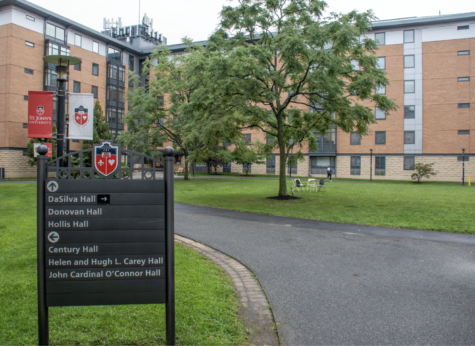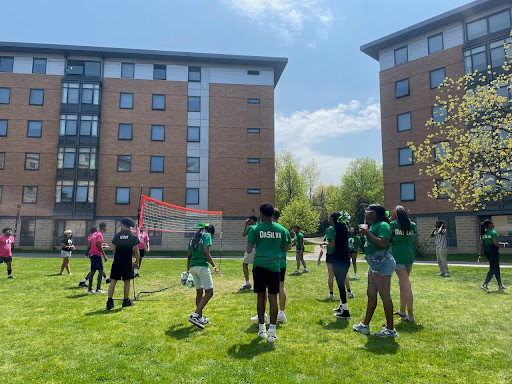
St. John’s University President Brian Shanley looks to overhaul the current policies that govern resident student conduct to make the University more approachable to existing and future students.
When asked about residence life policies, Shanley expressed his shock at the restrictive nature of the University’s visitation policies. “When I heard what the rules were, I’m like, wow. I’ve never seen anything quite like that,” Shanley told The Torch in an exclusive interview. “I think we have to overhaul the visitation policy, and I’m open to exploring the idea.”
Per the Residence Life Handbook, the Office of Residence Life supports the teachings of the Roman Catholic Church and is “committed to providing a holistic moral education.”
“We do not condone the following in the residence halls: cohabitation, exploitative relationships, and daytime or overnight visitors/residents involved in sexual intimacy,” the handbook reads.
Just last year, the University introduced gender-affirming and gender-inclusive housing, where students may live together “regardless of their gender marking.” The policy aims to foster an “affirming living community,” and does not recommend that students in relationships abuse the policy for cohabitation purposes.
Shanley plans to reevaluate visitation policies as well as the University’s alcohol policies.
“Obviously, we’re not a dry campus anymore, now that we’re selling beer in Carnesecca,” said Shanley remarking on the November 2022 decision to sell alcohol at Men’s Basketball games.
Apart from the DePaul Townhouses, which houses full-time law and graduate students, all University-sanctioned housing does not permit the storing of alcohol.
“But from a university administrator’s perspective, there are some positives and negatives that come with selling and making alcohol openly accessible on campus,” said Shanley. “There’s a school of thought that says, if you’re a dry campus, you just push the problem off campus.”
He remains “confident” of the decision to allow alcohol on campus, and despite acknowledging that policy overhauls take time, was hopeful new policies could be enacted by next year.
In collaboration with newly-appointed Vice President for Student Success and Retention Strategy Sara Kelly, the pair hopes the changes will not only make the University look more approachable and less restrictive, but also improve the lives of current students.
Apart from the positives of the decision, Shanley understands there will be restrictions. Since a small population of on-campus residents are over 21, the “holistic student experience” only pertains to a finite number of people.
Shanley also mentioned imposing specific restrictions on alcohol storage in the residence halls. When he served as president of Providence College, he outlawed hard liquor and only allowed a finite amount of beer and wine on campus.
Shanley is familiar with regulating alcohol policies on college campuses due to his Providence experience. He acknowledges the popularity of the school’s on-campus pub, which allowed the college to provide a safe drinking atmosphere for students and curb underage drinking.
After talks of re-opening the on-campus bar, “The Rat,” Shanley mentions it’s not in the picture right now, but said the University “would certainly have to think about what makes sense for us to sell it on campus someplace.”
“We found that it was pretty popular among our students because they didn’t want to go to the off campus bars, where there was a lot of underage drinking going on and sometimes alcohol abuse,” Shanley said, referencing Providence’s on-campus bar. “So, There are some pluses to having facilities on campus.”



















